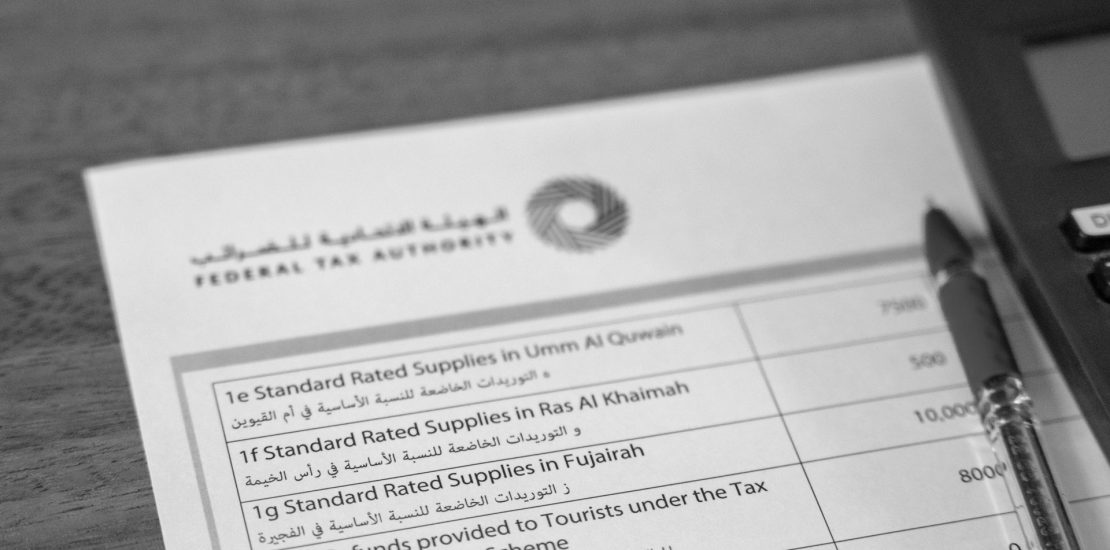UAE Corporate Income Tax: Record-Keeping and Compliance Deadlines
- 30.08.2025
- Posted by: Uwe Hohmann
- Categories: Tax, Dubai

The FTA (Federal Tax Authority) has issued new guidance emphasizing key compliance obligations for businesses subject to the UAE CIT (Corporate Income Tax) regime. For business owners, understanding these requirements is essential to avoid penalties and maintain good standing with tax authorities.
Record-Keeping: Your Foundation for Tax Compliance
Every business subject to CIT must maintain comprehensive documentation supporting its tax return submissions. This represents a legal obligation that forms the backbone of your tax compliance strategy.
The FTA requires businesses to keep detailed records that enable verification of taxable income calculations. While specific documentation needs vary by business type, certain core records remain universal across all sectors.
Essential Documentation Requirements
Your business must maintain several key categories of records throughout each tax period. Transaction records form the primary foundation, documenting all business activities that impact your tax position during the relevant period.
Asset records require particular attention, including comprehensive details of any purchases, disposals, or transfers occurring during the tax year. These records help establish the correct treatment of capital items and depreciation calculations.
Liability documentation provides the complete picture of your business obligations, while share records must capture the exact shareholding structure at the end of each tax period.
Seven-Year Retention Rule
All required documentation must be preserved for a minimum of seven years following the end of the tax period to which it relates. This extended retention period allows the FTA sufficient time to conduct reviews and ensures businesses can respond to any queries or audits that may arise.
The seven-year rule applies equally to both taxable persons and exempt entities, though the specific documents required may differ based on the nature of the exemption claimed.
Penalties for Non-Compliance
Businesses that fail to maintain adequate records face administrative penalties under both the Tax Procedures Law and CIT Law. The FTA takes record-keeping obligations seriously, and penalties can be substantial for non-compliant entities.
Even exempt persons must maintain sufficient documentation to verify their exempt status. The basis of exemption determines the specific records required, but the obligation to maintain proper documentation remains constant.
Tax Return and Payment Deadlines
The FTA has reinforced the critical importance of meeting CIT submission and payment deadlines. Taxable persons must submit their tax returns and settle any CIT payable within nine months of their tax period end.
This timeline provides businesses with reasonable preparation time while ensuring the tax authority receives returns within a predictable schedule. For instance, a business with a financial year ending on 31.12.2025 must complete both filing and payment by 30.09.2026.
Exempt persons required to register must submit annual declarations within the same nine-month timeframe from their financial year end.
Preparing for Success
Businesses should review their current record-keeping systems and compliance procedures. The CIT Law and FTA guidance materials provide comprehensive direction for proper compliance.
Establishing record-keeping practices and maintaining awareness of filing deadlines ensures manageable compliance while avoiding penalties. The key to successful CIT compliance lies in preparation, organization, and timely action.
TME Services - Your Complete Business Partner
Our comprehensive services are designed to support you every step of your business journey:
- Company Formation: We guide you through all aspects of setting up your company, whether in a free zone or on the mainland, ensuring you choose the best option for your business.
- Visa and Emirates ID Services: We streamline the process of securing visas and Emirates IDs for you and your employees, allowing you to focus on your business operations.
- Accounting: Our team ensures your business stays compliant with local financial regulations, which is crucial for maintaining good standing in Dubai’s business community.
- Tax: We help manage Dubai’s tax environment, ensuring your business remains compliant while optimizing your tax position.
- Business Consulting: Leveraging our deep understanding of Dubai’s market, we provide valuable insights and help you develop effective strategies to succeed.
Visit our services page to learn more about everything we do.
-
21 Feb 2026 DubaiUAE Non-Oil GDP Grows 6.1%
-
21 Feb 2026 TaxUAE Tax Invoicing Mandatory Requirements
-
21 Feb 2026 DubaiMoHRE Completes Consultation on the Alternative End-of-Service Savings Scheme
-
13 Feb 2026 TaxUAE Ministry of Finance Designates VARA as Competent Authority Under CIT Framework
-
13 Feb 2026 TaxUAE Cabinet Decision Exempts Certain Sports Entities from Corporate Income Tax